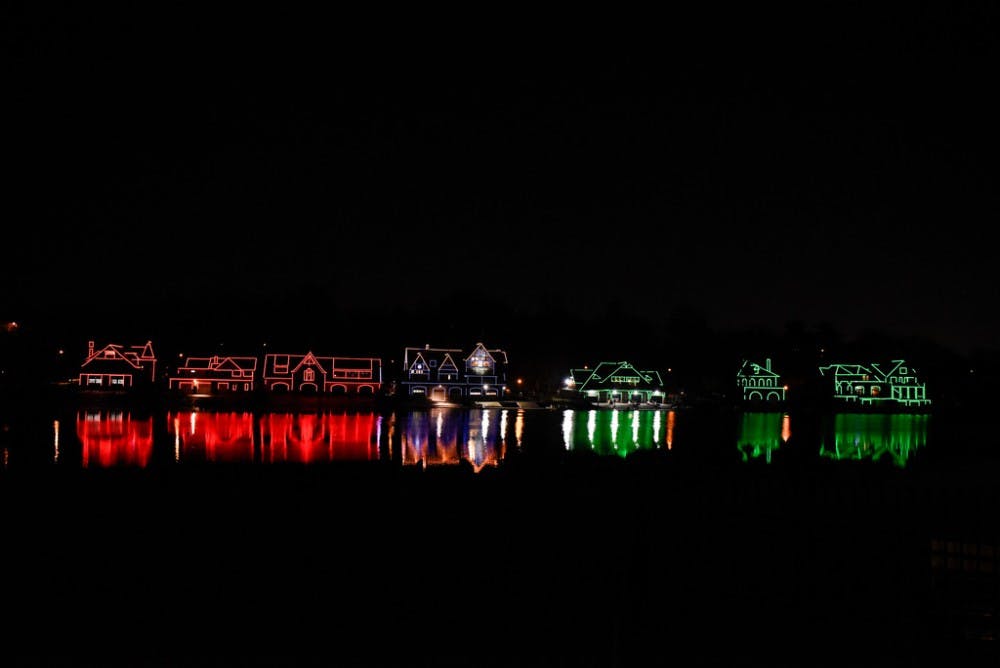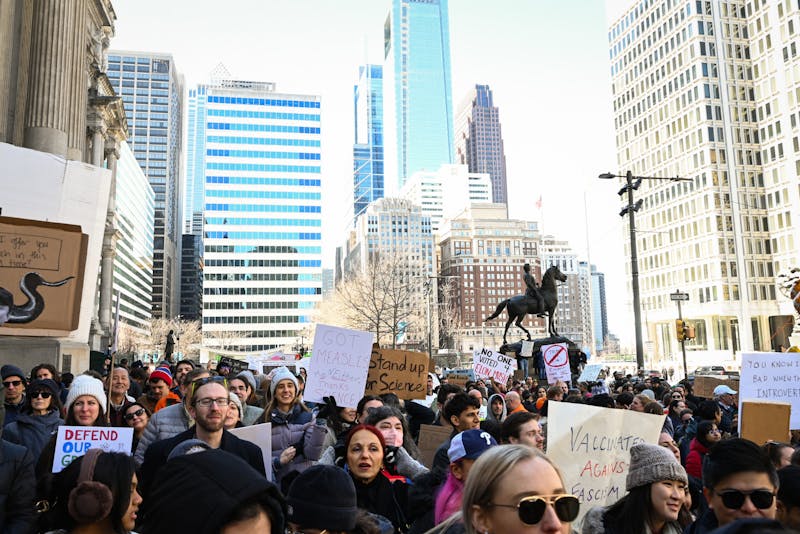
Throughout the month of December, Penn students and Philadelphia residents alike celebrated the 51st anniversary of Kwanzaa. From an elaborate light display along the Schuylkill River to a pre-finals celebration in Houston Hall, the cultural holiday was celebrated in a variety of ways.
On Dec. 5, Makuu: The Black Cultural Center held their 25th Pre-Kwanzaa celebration in Houston Hall, led by Eric Grimes, a part-time lecturer at Penn's Graduate School of Education and at the School of Social Policy & Practice. Staff from the African-American Resource Center were also present at some of the opening activities of the event.
According to Grimes, the event was attended by students, faculty, and staff members, many of whom were celebrating Kwanzaa for the first time.
Grimes also led the fourth annual Kwanzaa celebration at the Kingsessing Recreation Center in southwest Philadelphia, which was sponsored by Southwest Philadelphia District Services and the office of Councilwoman Jannie Blackwell. Another Kwanzaa celebration took place at West Philadelphia High School on Dec. 31, Grimes and Hill each independently noted.
The event was organized by the Kwanzaa Cooperative, an organization that promotes Kwanzaa through technical assistance, presentations, and training, according to Kwanzaa Cooperative Chair and Penn School of Education and School of Social Work graduate Maisha Ongoza.
The event was supposed to feature Ron Karenga, the founder of Kwanzaa, Ongoza said he was sick and unable to attend. Instead, professor of Media Studies and Urban Education at Temple University and 2005 Penn School of Education graduate Marc Lamont Hill, along with activist Segun Shabaka, led the ceremony and gave presentations on the history and mission of Kwanzaa.
“It was cold, bad weather, and with Dr. Karenga not being there, we thought turnout might be low,” Ongoza said. “But we still had about 200 [attendees].”
Ongoza said up until 10 years ago, The Kwanzaa Cooperative gave a presentation at Du Bois College House on Kwanzaa every year, and she wasn't sure why they stopped.
Kwanzaa was founded in 1966 by scholar Maulana Karenga as a non-religious Pan-African holiday. Participants gather to celebrate core themes, such as creativity, faith, and purpose — represented by candles on the Kinara, which are lit from Dec. 26 to Jan. 1.
“It gave students something to participate in together before they left for Christmas break,” Grimes said.
Executive Director of the Commission for Women in the Philadelphia Mayor’s Office Jovida Hill attended a Kwanzaa celebration on Dec. 26 at Boathouse Row, which includes Penn’s rowing teams’ facilities. During the event, each house lit up in the colors of Kwanzaa — red, black, and green — which Hill said represented both the central tenets of Kwanzaa and black nationalist colors.
“It’s a holiday that doesn’t have anything to do with religion,” Hill said. “It’s about being African-American and celebrating the African-American identity.”
“No other city has done anything like it,” Hill added, “Philadelphia is unique in that way.”
Hill added that the prevalence of Kwanzaa in Philadelphia this year "recognized the significance of African-American culture on a public, city-wide level."
Correction: A previous version of this article wrote that the Dec. 5 event was organized by Makuu in partnership with the AARC. The event was actually just organized by Makuu and featured AARC staff. The DP regrets the error.
The Daily Pennsylvanian is an independent, student-run newspaper. Please consider making a donation to support the coverage that shapes the University. Your generosity ensures a future of strong journalism at Penn.
Donate






